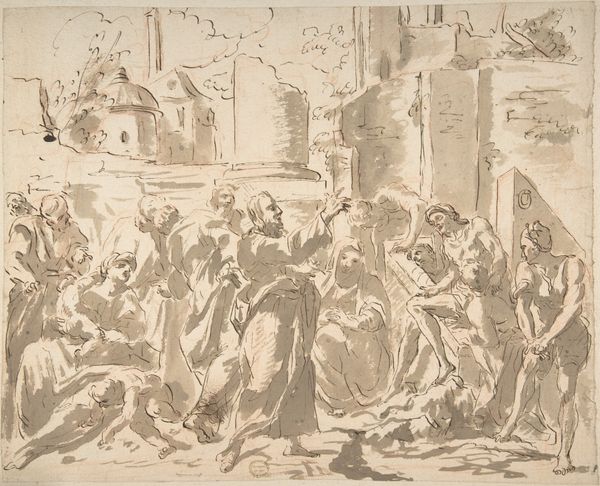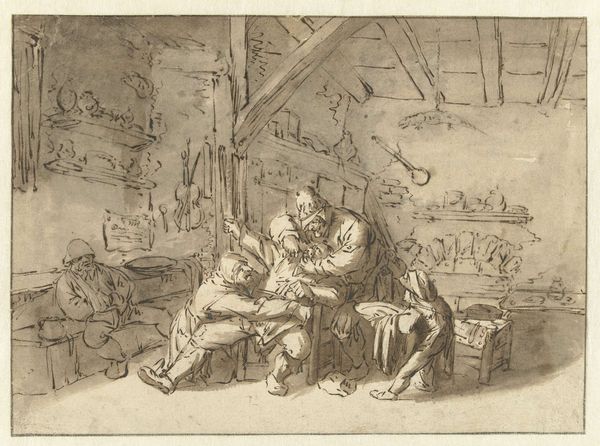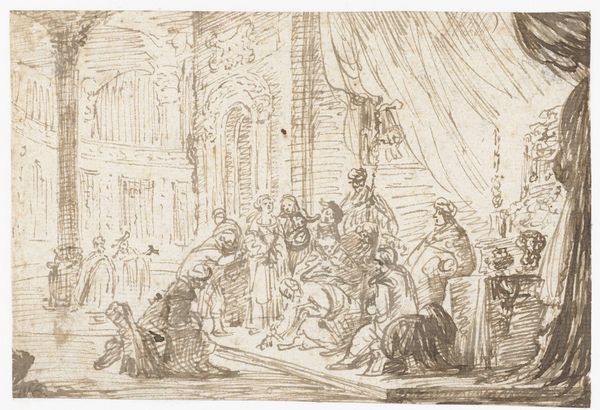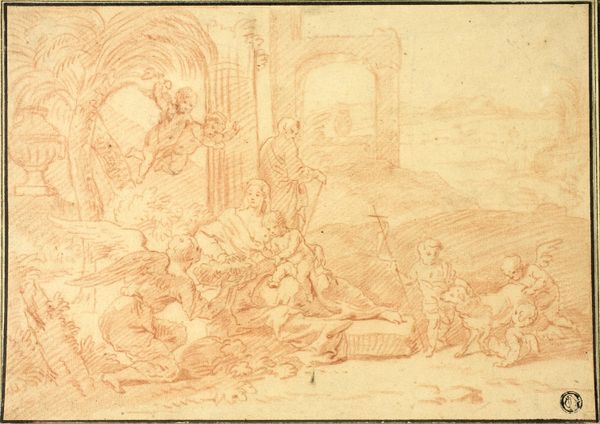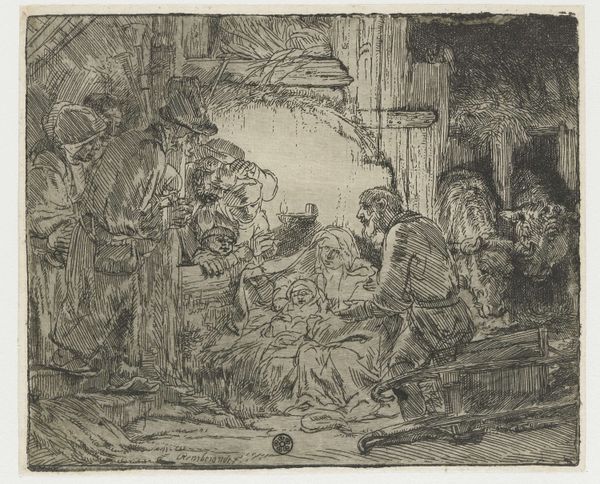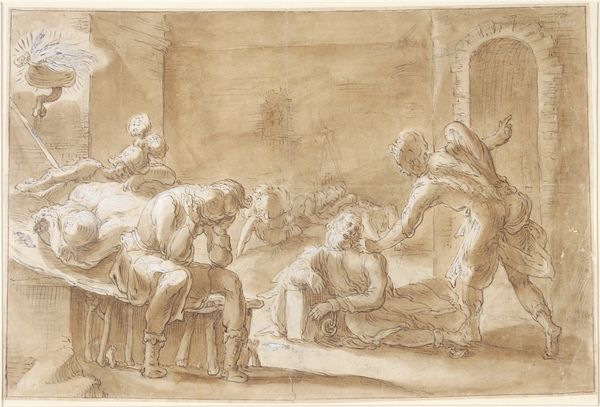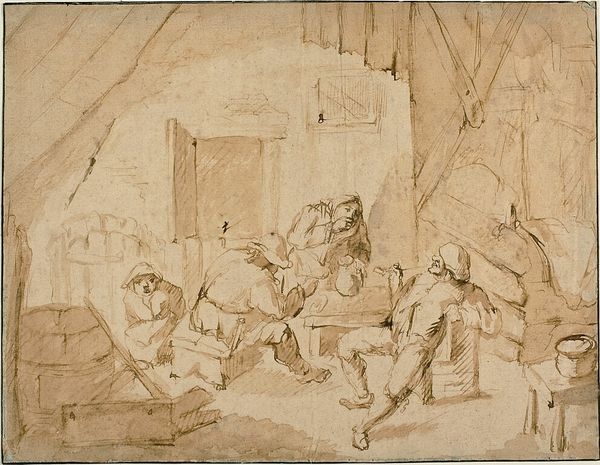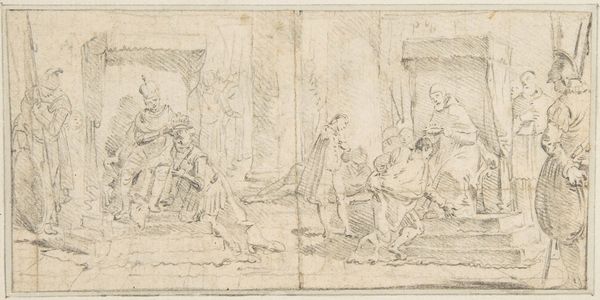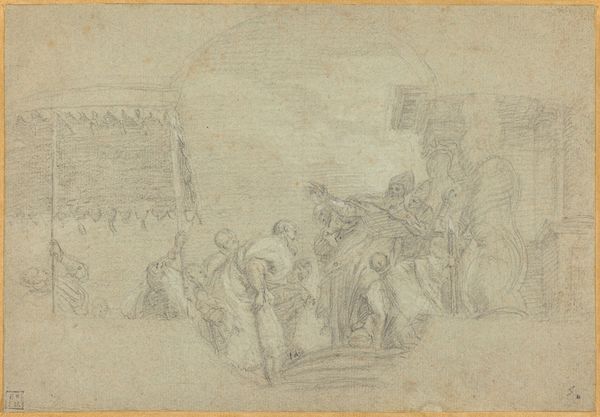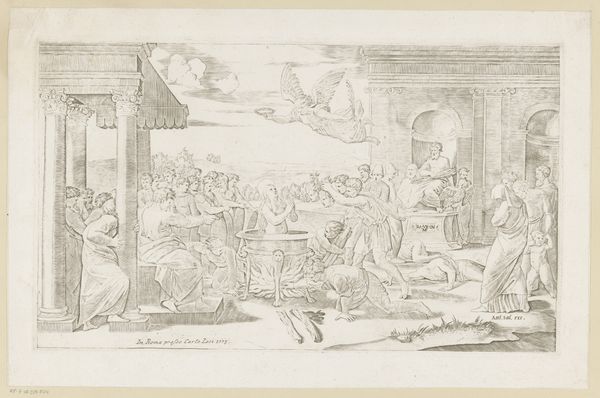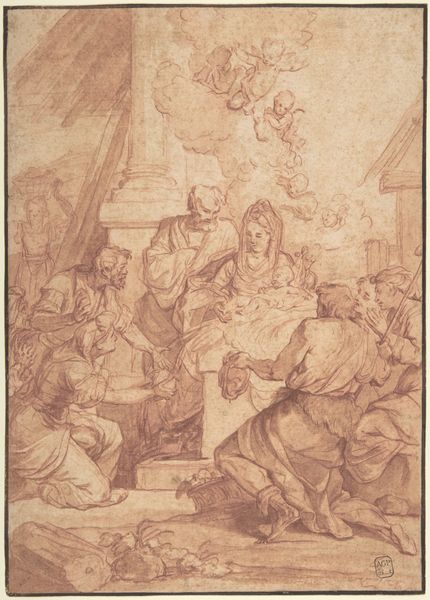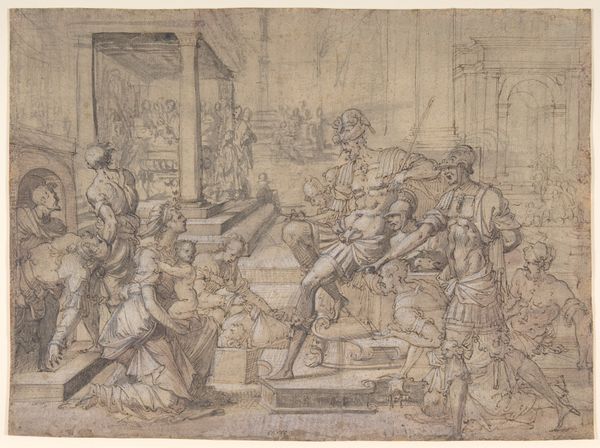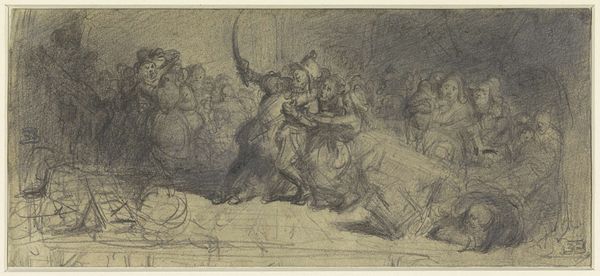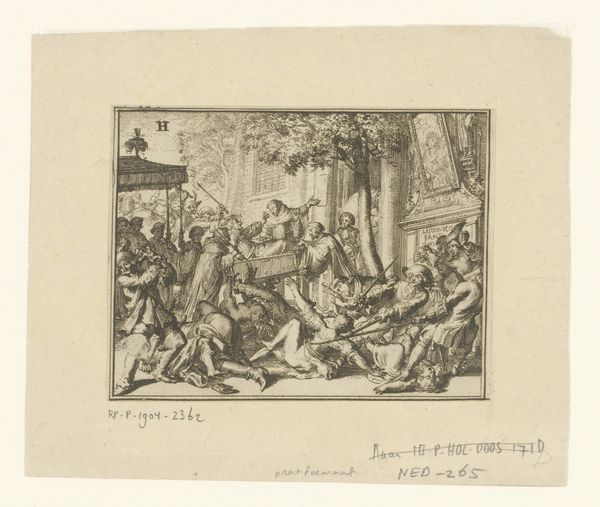
drawing, paper, ink, pencil
#
drawing
#
ink drawing
#
landscape
#
figuration
#
paper
#
ink
#
pencil
#
genre-painting
#
history-painting
#
realism
Dimensions: height 112 mm, width 136 mm
Copyright: Rijks Museum: Open Domain
Curator: Take a look at this drawing from the Rijksmuseum collection, "Boerengezin in interieur" or "Farm Family in an Interior." It's unsigned, attributed to an anonymous artist, dating from sometime between 1647 and 1745, rendered in pencil and ink on paper. Editor: It's wonderfully busy, isn't it? It feels almost like a snapshot of a family caught mid-activity, bustling and very real. But it also seems very muted. Somber. Is that right, do you think? Curator: Indeed. What’s striking about a piece like this is how it offers a window into the domestic life of the common person, stripped bare of romanticism or embellishment. We see a mother tending to a child, another playing nearby, while the father seems occupied with chores. It speaks volumes about labor and familial bonds. It also strikes me that these kinds of everyday interiors would eventually, with artists like Vermeer, become quite fashionable. Editor: There's such raw immediacy. But anonymous, still? That’s the bit I can’t quite get over! Whoever captured this scene possessed a delicate and attentive skill, so, I mean, did we forget to note their name or something? Are we maybe ascribing cultural or maybe even class value onto unsigned artworks? Curator: Absolutely. The history of attribution is so knotted together with ideas about artistic genius. So, an artist who did not sign his drawing or print work often vanishes, whatever their ability. Sometimes this is because of social barriers preventing participation in formal artistic training. In fact, attributions do change periodically as our knowledge base evolves and certainties shift. Editor: What is amazing, and, it almost speaks more, to this almost casual level of observation of quotidian happenings within, apparently, very poor social and financial states, by some unknown recorder of visual information of such direct and intimate scenes…I feel an honesty to this composition, though, that, through a more personal lens, strikes a profound chord with viewers. Curator: That intimacy, that unflinching view, might be what resonates most today. We yearn for authenticity, and this piece delivers it in spades. Editor: Makes one consider one's own interiors in new ways, right? Looking into corners that might’ve usually faded back. Curator: Exactly, and reevaluating the value we place on our own environments and narratives, artistic or otherwise.
Comments
No comments
Be the first to comment and join the conversation on the ultimate creative platform.
